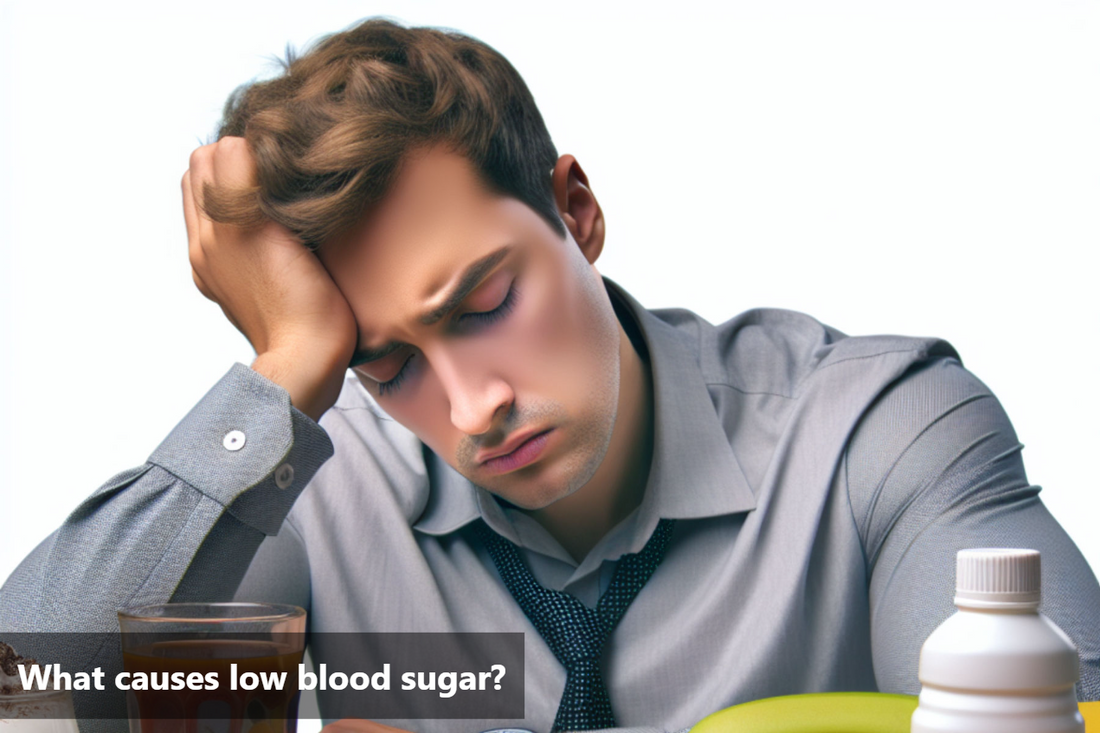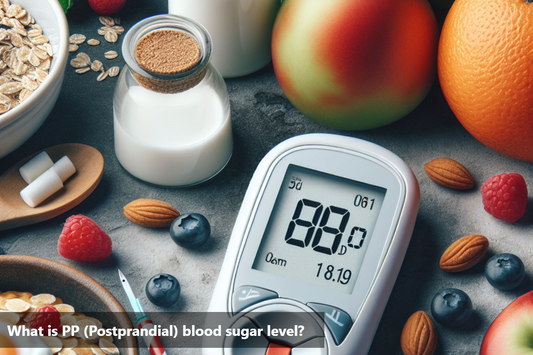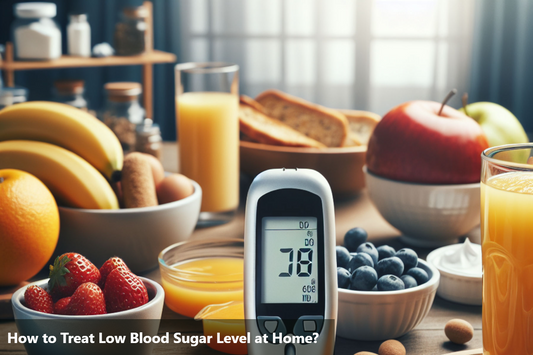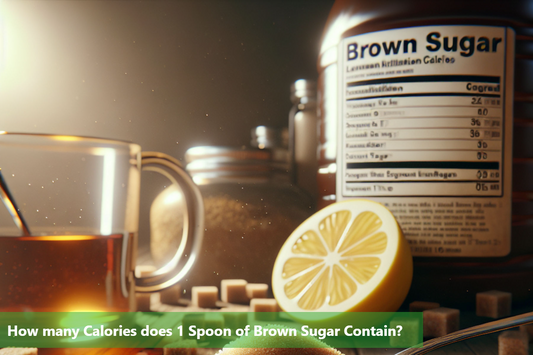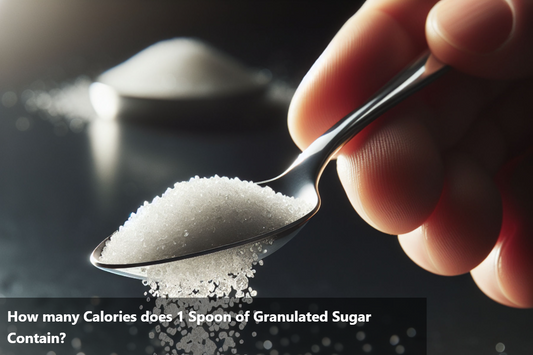Low blood sugar, or hypoglycemia, occurs when sugar levels in the blood drop too low. Recognizing triggers like skipping meals, excessive alcohol consumption, certain medications, or health conditions such as diabetes is crucial in avoiding low blood sugar episodes. Understanding the causes enables informed choices about diet, lifestyle, and medication. By prioritizing health and nutrition, we can prevent low blood sugar and ensure overall well-being.
Insulin and Glucagon Imbalance
Here's how insulin and glucagon work together and what happens when there's an imbalance:
Insulin: Insulin is made by special cells in the pancreas called beta cells. It is released when sugar levels in the blood go up, like after eating. Its main job is to help move sugar from the blood into cells for energy or later use. Insulin also tells the liver not to make more sugar and stores extra sugar as glycogen in the liver and muscles.
Glucagon: Glucagon is made by other special cells in the pancreas called alpha cells. It is released when sugar levels in the blood drop, signaling the body to release stored sugar to raise blood sugar levels. Its main job is to tell the liver to turn stored sugar (glycogen) into sugar (glycogenolysis) and make sugar from other sources like amino acids (gluconeogenesis). Glucagon also stops the body from using too much sugar, which can help raise blood sugar levels.
When there's a problem with the balance of insulin and glucagon, a few things can happen:
Not Enough Insulin: In some situations like type 1 diabetes, the body doesn't make enough insulin because the immune system destroys the beta cells in the pancreas. Without insulin to help sugar enter cells, blood sugar levels increase, causing high blood sugar levels (hyperglycemia).
Insulin Doesn't Work Well: In cases like type 2 diabetes, cells don't respond well to insulin, needing more insulin to keep sugar levels normal. This can lead to high levels of insulin in the blood (hyperinsulinemia), which can tire out the beta cells and cause a lack of insulin.
Too Much Glucagon: Too much glucagon production, which is seen in conditions like glucagonoma or some hormonal problems, can make the liver produce too much sugar and raise blood sugar levels.
Problems in Diabetes Treatment: The medicines used for diabetes, like insulin or certain drugs that boost insulin release (e.g., sulfonylureas), may sometimes cause low blood sugar levels (hypoglycemia) if the doses are too high or not matched well with food, activity, or other things that affect sugar levels.
Medication and Health Conditions
Medication Interactions
When you take different medicines at the same time, they can affect each other. This might make the drugs stronger or weaker. Sometimes it can change how your body processes the drugs. This can lead to high or low levels of drugs in your body, which could be harmful.
Health Conditions and Medications
Some health problems can change how your body handles medications. For instance, liver or kidney diseases can make it hard for your body to process drugs properly. This can cause drugs to build up in your system and cause harm.
People with chronic conditions like diabetes, high blood pressure, heart disease, or breathing issues often need to take several medications. This helps manage symptoms and prevent complications.
Different health problems may need specific medications. For example, people with asthma might need bronchodilators or corticosteroids to control symptoms and prevent flare-ups.
When prescribing new medications, healthcare providers need to consider a person's overall health, other health conditions, and medications being taken to make sure the treatment is safe and works well.
Polypharmacy
Polypharmacy means using many medications at once, which can raise the risk of drug interactions, side effects, errors, and not taking the medications as needed.
Healthcare providers should regularly check a person's medication list to see if all the drugs are needed, safe, and suitable. They can find opportunities to lessen the number of drugs or simplify the treatment plan.
Adverse Drug Reactions (ADRs)
Adverse drug reactions are unintentional and unwanted effects of medications. They can vary from mild to severe and can happen right away or over time.
Some people may be more prone to these reactions due to age, genetics, other health conditions, or medications they are taking.
Keeping an eye out for adverse reactions and dealing with them quickly is important for making sure medications are safe and work well.
Diet and Lifestyle Factors
Analysis of Diet and Lifestyle Factors Contributing to Low Blood Sugar
-
Nutrient-Rich Diet:
Consuming a balanced diet rich in fruits, vegetables, whole grains, lean proteins, and healthy fats provides essential nutrients, vitamins, and minerals necessary for optimal health.
Aim to incorporate a variety of colorful fruits and vegetables into your meals to ensure you're getting a wide range of nutrients and antioxidants.
-
Hydration:
Staying adequately hydrated is essential for overall health. Water is vital for regulating body temperature, aiding digestion, transporting nutrients, and flushing out toxins.
Aim to drink plenty of water throughout the day and limit intake of sugary beverages and excessive caffeine.
-
Portion Control:
Paying attention to portion sizes can help prevent overeating and promote weight management. Use smaller plates, bowls, and utensils to help control portion sizes.
Listen to your body's hunger and fullness cues and stop eating when you feel satisfied.
-
Regular Physical Activity:
Engaging in regular physical activity offers numerous health benefits, including weight management, improved cardiovascular health, enhanced mood, and reduced risk of chronic diseases such as diabetes and heart disease.
Aim for at least 150 minutes of moderate-intensity aerobic exercise or 75 minutes of vigorous-intensity exercise per week, along with muscle-strengthening activities on two or more days per week.
-
Limiting Processed Foods and Sugary Snacks:
Limiting intake of processed foods, sugary snacks, desserts, and sweetened beverages can help reduce the risk of obesity, type 2 diabetes, heart disease, and other health problems.
Choose whole, minimally processed foods whenever possible and read food labels to avoid hidden sugars and unhealthy additives.
-
Mindful Eating:
Practicing mindful eating involves paying attention to your food choices, eating slowly, and savoring each bite. This can help prevent overeating, improve digestion, and enhance satisfaction with meals.
Minimize distractions while eating, such as watching TV or using electronic devices, and focus on the sensory experience of eating.
-
Quality Sleep:
Getting adequate, high-quality sleep is essential for overall health and well-being. Poor sleep quality or insufficient sleep has been linked to increased risk of obesity, diabetes, heart disease, and other health problems.
Aim for 7-9 hours of sleep per night and establish a regular sleep schedule by going to bed and waking up at the same time each day.
-
Stress Management:
Chronic stress can have detrimental effects on physical and mental health, increasing the risk of conditions such as hypertension, depression, anxiety, and heart disease.
Practice stress-reducing techniques such as deep breathing, meditation, yoga, tai chi, or spending time in nature to promote relaxation and well-being.
-
Social Connections:
Maintaining strong social connections and engaging in meaningful relationships can have a positive impact on mental health, happiness, and overall quality of life.
Make time for social activities, connect with friends and loved ones regularly, and seek support when needed.
Bottom Line
Low blood sugar (hypoglycemia) occurs when glucose levels drop. Causes include excess insulin, insufficient food, or health conditions. Symptoms include dizziness, confusion, and sweating. To prevent low blood sugar, monitor levels, eat balanced meals, and exercise regularly. Understanding and managing blood sugar is vital for health.
This Blog post is an initiative by DiabeSmart, to provide accurate and Nutritionist / Doctor approved information related to Diabetes. DiabeSmart is India's first Food brand designed specifically for Diabetics, that has been clinically tested on Diabetics and Pre-Diabetics to deliver 55% - 70% lower Sugar spikes. DiabeSmart is part of Lo! Foods - India's leading brand for Everyday Functional Health foods.

